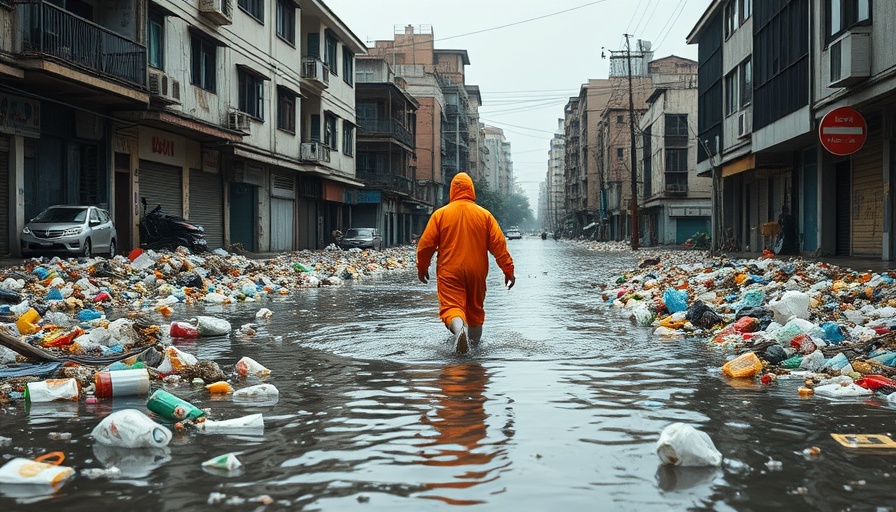
Understanding the Challenges of a Global Plastic Treaty
As nations prepare for the upcoming United Nations-hosted negotiations in Geneva aimed at creating a global treaty to reduce plastic waste, significant obstacles are becoming apparent. According to regional observers, uniting Asian countries under a common framework for combating plastic pollution may be especially difficult, given the diverse economic dependencies and cultural backgrounds of the involved nations.
The Diverse Landscape of Asia’s Plastics Crisis
In Asia, the stakes are exceptionally high. With countries like China and Japan emerging as major producers of plastics, while nations such as the Philippines, Malaysia, and Indonesia are grappling with inadequate waste management systems, this region finds itself at the intersection of creation and disposal. Siddharth Ghanshyam Singh, program manager at the Centre for Science & Environment in India, points out that Asia's role in the plastics lifecycle is more pronounced than in any other region, making it imperative that these nations prioritize action against plastic pollution.
A Complicated Path to Consensus
The challenges to reaching an agreement are magnified by the varying interests of countries in the region. For instance, Southeast Asia is a hub for the rapidly growing petrochemical industry, which complicates any movement towards plastics reduction. Countries like Thailand advocate for change, yet others like Indonesia and Vietnam are hesitant, largely due to their reliance on this industry for economic growth.
Local Resistance Versus Global Needs
The impending talks in Geneva will need to address significant resistance to measures aimed at reducing plastic usage. The lack of a unified forum where countries can openly discuss and align their priorities only exacerbates these issues. As observed by Punyathorn Jeungsmarn from the Environmental Justice Foundation, the current economic climate and challenges posed by the petrochemical industry are pivotal factors in determining each nation’s stance on plastics reduction.
Implications for Environmental Policy and Action
This backdrop raises important questions about the efficacy of current environmental policies in Asia. The region's diversity in economic development and cultural context means that solutions must be tailored; a one-size-fits-all approach is unlikely to succeed. Observers urge not only for localized solutions but for a broader dialogue about sustainable practices that take into account economic realities and environmental responsibilities.
The Role of Community Engagement in Solving Plastic Pollution
Understanding how various communities engage with sustainability initiatives is crucial. For instance, public awareness campaigns regarding plastic usage and its impact on marine biodiversity could empower consumers to choose more eco-friendly products. By fostering a culture of sustainability—from community gardens to reduced waste practices—individuals can make significant contributions toward environmental conservation.
Future Predictions: What Lies Ahead
Looking to the future, the outcome of the Geneva treaty talks may set a precedent for international environmental cooperation. However, without broader commitment and understanding of the unique challenges faced by different countries, the ambition of a global plastic treaty could falter. Fostering strong local governance around waste management and involving various stakeholders, including businesses focused on sustainable products, could pave the way for successful implementations in the region.
What We Can All Do to Fight Plastic Pollution
As individuals, we can contribute to combating plastic pollution by modifying our consumption habits—choosing sustainable products, utilizing reusable bags, and supporting businesses that prioritize eco-friendly packaging. Moreover, participation in local sustainability initiatives and community-driven projects can amplify efforts toward reducing our collective plastic footprint.
In conclusion, as the global community turns its focus toward the urgent need to address plastic pollution, the Asia-Pacific region must navigate its unique challenges to make meaningful progress. Engaging in sustainable practices and fostering collective action will drive the change needed to protect our environment.
 Add Row
Add Row  Add
Add 



Write A Comment